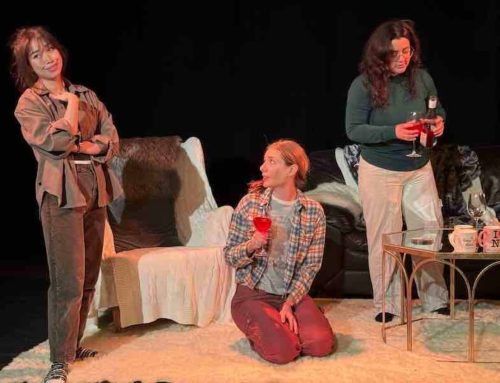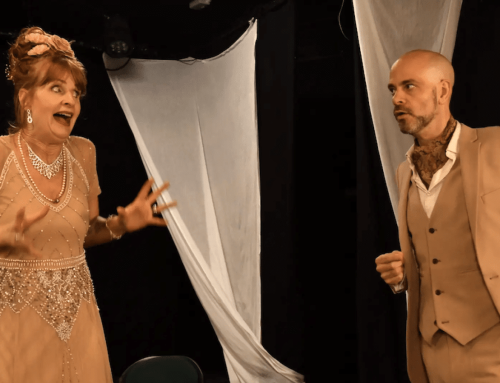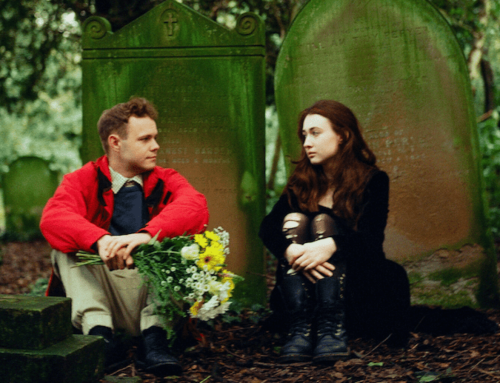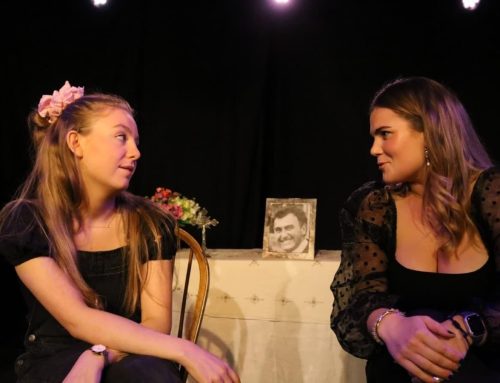Anxious, depressed, and isolated university student Jess lives alone in her mum’s plush flat overlooking the Firth of Forth. There is a Joan Eardley painting on the wall that may or may not depict a woman drowning in the sea. Out for a run Jess is catcalled by a van driver and bumps into the blooded figure of Sima, a care-worker seemingly fleeing from an abusive boyfriend. She invites the stranger in to charge her phone. It is a decision that will have dramatic ramifications for both.
Sima (Lucy Menzies), who speaks of herself in third person, claims to be an avenging supernatural spirit in human form. The ghostly presence demands Jess (a suitably frenetic turn by a tremendous Esme Hough) save the real-life Sima from drowning at the hands of her murderous partner Euan (Drew Gregg) later that evening. But is any of this real, or is it merely a Chablis-fuelled fever dream inspired by a painting and Jess’s own long-forgotten family demons? Subsequent visits from a plumber and police officer carry hints of spectral apparitions from Dicken’s A Christmas Carol and complicate matters significantly.
Ellen Bannerman’s debut play Sima is certainly ambitious, even if the promise of its other-worldly first act tails off into frustrating ambiguity by the third. The narrative’s fractured timeline and episodic storytelling, together with Jess’s improbable encounters may well leave you with a some WTF? scratching of the head by the end. What gives the work its undeniable momentum, however, is Bannerman’s hugely economical style of writing. Jess’s verbal sparring with her visitors, with sentences often left unfinished or ideas simply hinted at, transmit a feel of real tension to emerging events. Understatement rarely carries so much force in writing; there is a real confidence here in Bannerman’s approach to dialogue.
Sima has something to say about the trauma of domestic abuse, not just for its victims but the lifelong damage done to those who grow up in abusive family environments. In Jess’s plaintive pleas to the real-life Sima we hear what the character wants to, but cannot, say to her own mother. Gregg is great as the deceptively charming Euan, whose crass self-confidence transmutes into odious self-pity before our eyes. Menzies is good too both as avenging spirit and as her damaged doppelganger. Lily McKay’s set perfectly evokes the feel of an upmarket Edinburgh pied-a-terre. It is both Jess’s prison and her sanctuary.
Writer: Ellen Bannerman
Director: Maddy Corner
More Recent Reviews
Milked. White Bear Theatre.
Written in 2013 and first seen a decade ago in a production at the Soho Theatre, Simon Longman’s slice [...]
Fresh Mountain Air. Drayton Arms Theatre.
Lana Del Rey’s ode to female unity and resilience, God Bless America And All the Beautiful Women In It, [...]
Rodney Black: Who Cares? It’s Working. Lion and Unicorn Theatre.
Rodney Black is a tacky small-time comedian with a venal manager and a taste for nasty misogynism. “I’m a [...]






